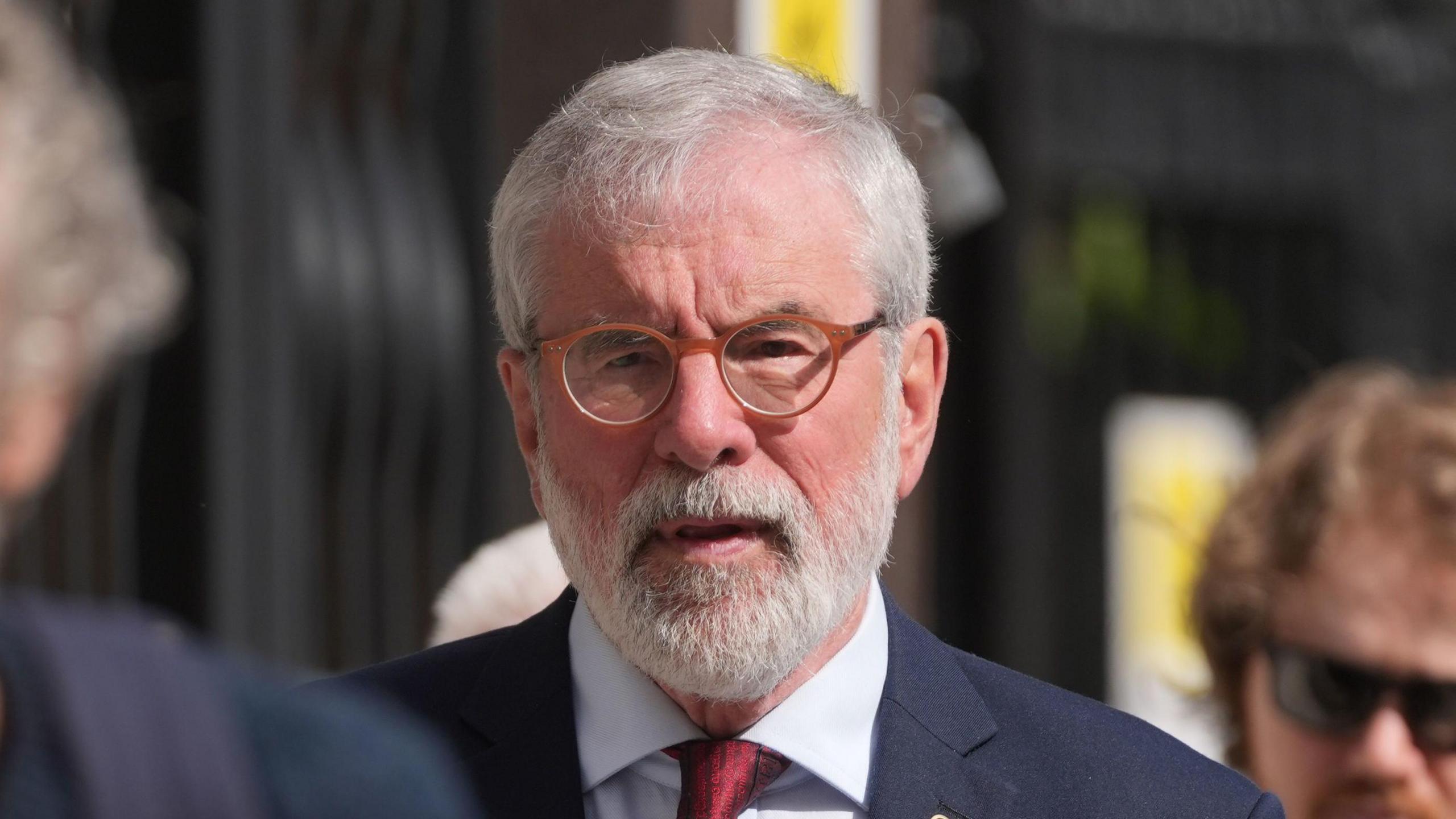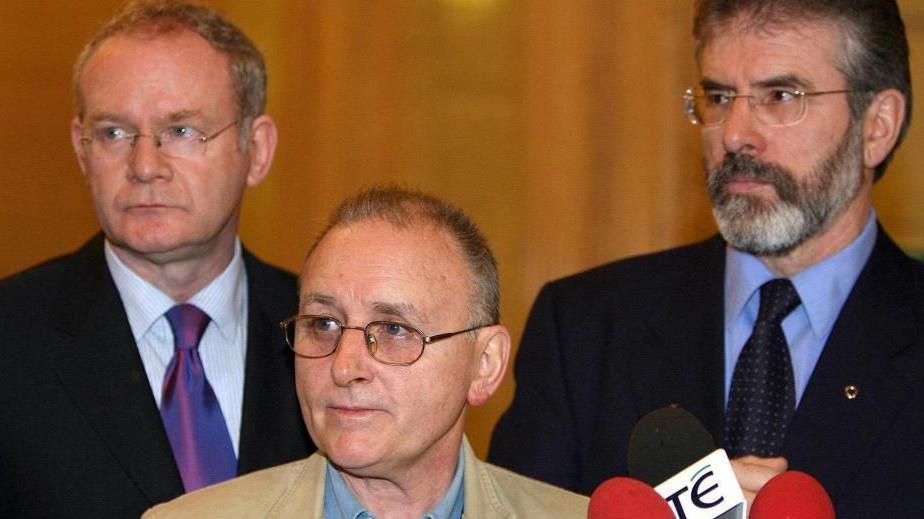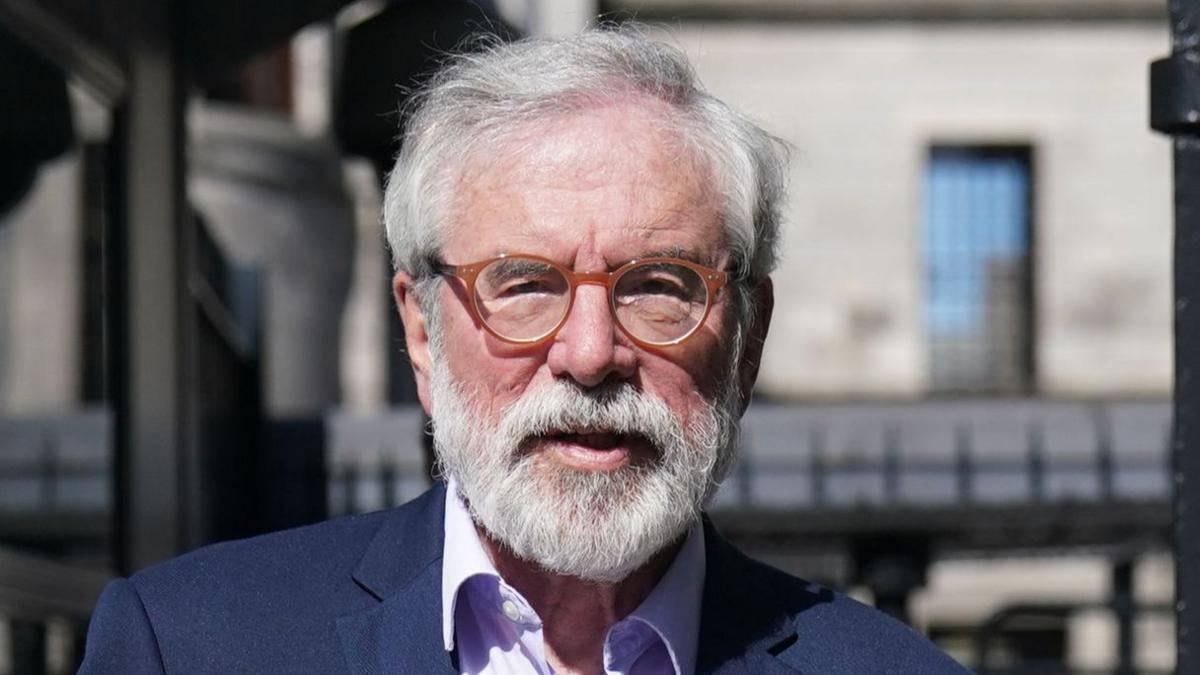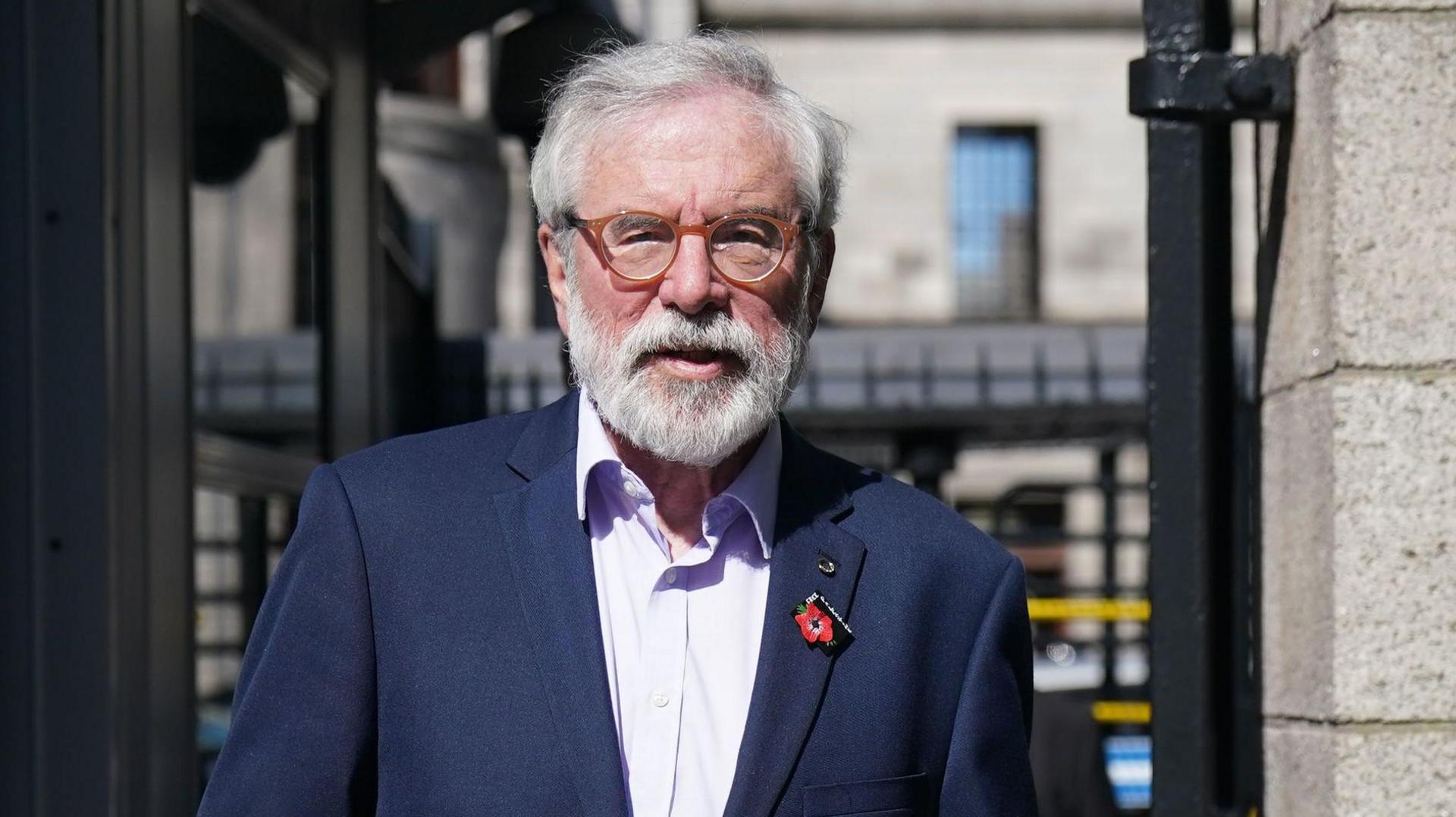Jury in Adams' libel case against the BBC to consider verdict next week

Former Sinn Féin president Gerry Adams outside the High Court in Dublin
- Published
The jury hearing Gerry Adams' libel case against the BBC will be sent out to consider its verdict next week.
He is suing over a 2016 Spotlight programme and online report in which an anonymous source alleged the former Sinn Féin leader sanctioned the murder of a British agent, Denis Donaldson.
Mr Adams, 76, denies the claim.
The trial, at the High Court in Dublin, has taken place over the past four weeks.
Mr Justice Alexander Owens began addressing the jury of seven men and five women on issues and evidence on Friday, and will continue next Tuesday morning.
He told them they are not being asked to reach a decision as journalists, but as "ordinary members of the public using common sense".
He also added that they are not tasked with making a "historical judgment" on Mr Adams' role in the peace process.
Judge says nine or more jurors must agree
In fighting the case, the BBC has argued a defence of fair and reasonable publication in the public interest, as set out in section 26 of Ireland's 2009 Defamation Act.
Mr Adams claims he was defamed in the Spotlight programme and an accompanying online article.
The BBC has said the allegation was supported by five other sources.
There has been 15 days of evidence from 10 witnesses, including Mr Adams and reporter Jennifer O'Leary.
Members of Mr Donaldson's family have watched proceedings via video link.
The jury has been given an issues paper – a series of questions – it must deliberate upon.
Mr Justice Owens told jurors a "cohort" of nine or more has to be in agreement.
Only if the jury finds against the BBC, would it then consider the amount of damages.
Mr Adams brought the case in Dublin as the Spotlight programme was able to be watched in Ireland, where it was seen by about 16,000 people.
He was a TD for Louth at the time.
The online article had approximately 700 hits in Ireland during a 14-month period after publication in September 2016.
Mr Donaldson was shot dead in Donegal in 2006, months after admitting having worked for the police and MI5 inside Sinn Féin for 20 years.
In 2009, the Real IRA said it had murdered him.
Based on sources, Spotlight claimed the killing was the work of the Provisional IRA.
Who was Denis Donaldson?

Denis Donaldson was a key figure in Sinn Féin and worked closely with former leaders Martin McGuinness and Gerry Adams
Mr Donaldson was once a key figure in Sinn Féin's rise as a political force in Northern Ireland but he was found murdered in 2006 after it emerged he had been a spy.
He was interned without trial for periods in the 1970s.
After the signing of the Good Friday Agreement, Sinn Féin appointed Mr Donaldson as its key administrator in the party's Stormont offices.
In 2005, Mr Donaldson confessed he was a spy for British intelligence for two decades, before disappearing from Belfast.
He was found dead in a small, rundown cottage in Glenties, County Donegal.
Who is Gerry Adams?
Mr Adams was the president of republican party Sinn Féin from 1983 until 2018.
He served as MP in his native Belfast West from 1983 to 1992 and again from 1997 until 2011 before sitting as a TD (Teachta Dála) in the Dáil (Irish parliament) between 2011 and 2020.
Mr Adams led the Sinn Féin delegation during peace talks that eventually brought an end to the Troubles after the signing of the Good Friday Agreement in 1998.
He was detained in the early 1970s when the government in Northern Ireland introduced internment without trial for those suspected of paramilitary involvement.
Mr Adams has consistently denied being a member of the IRA.
- Published22 May

- Published21 May

